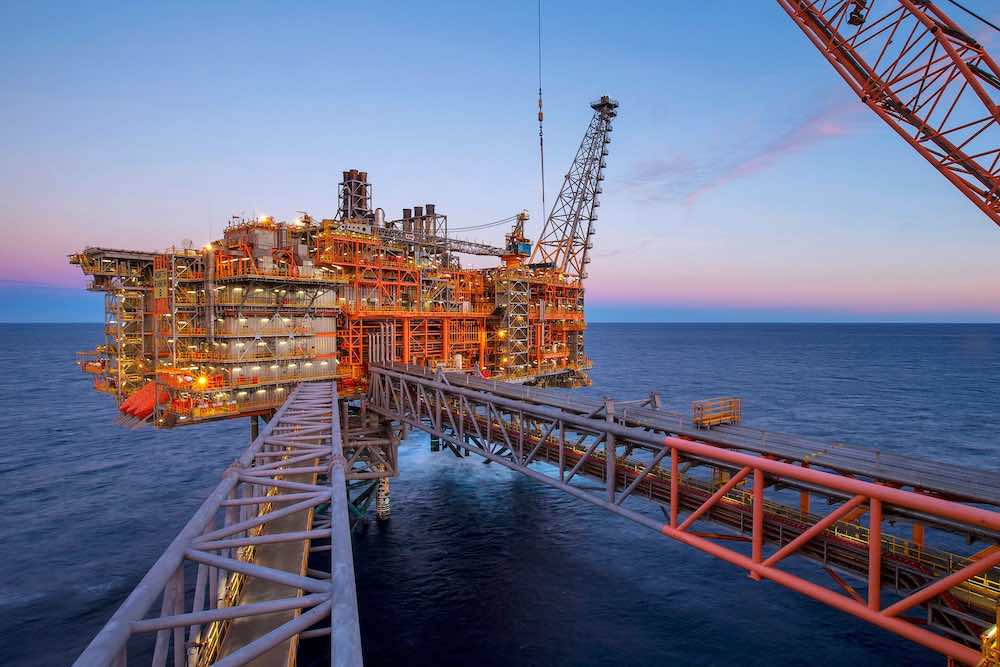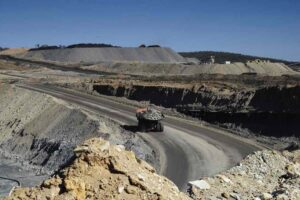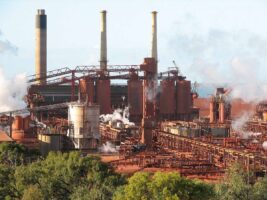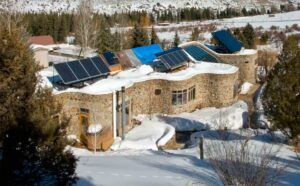In what is a feat of corporate climate denialism and dereliction of fiduciary duty to invest strategically for the long-term interests of shareholders, Woodside this week cited market uncertainty over the climate science as a reason to delay its green investments.
The $55 billion fossil fuel giant – Australia’s biggest – will simultaneously accelerate deployment of three high-emissions greenfield methane gas and oil developments globally, pointing to mythically high return projections completely unsupported by reality to support the play.
Apparently, Woodside just sees too many climate scenarios and doesn’t know which one to pick! And blames its customers for its corporate confusion.
CEO Meg O’Neill calls them “price sensitive animals”, saying they aren’t willing to pay for low-emissions solutions, and asserting that there is too much market and policy uncertainty for Woodside to invest in decarbonisation.
It even warns it may fail to meet its own measly clean energy project target of $US5 billion capital expenditure to 2030, just a fraction of its capex on high emissions projects.
The special pleading here is coupled with O’Neill’s bizarre assertion that Woodside’s commitment to dig and ship more climate-destroying fossil fuels will deliver a shareholder bonanza. For example, she cites an expected internal rate of return of a staggering 16% at its $US7.2 billion Trion oil project under construction in Mexico.
There is zero historic evidence to support any of the Woodside modelling of the real financial returns generated from previous fossil fuel investments over the last decade.
Quite the contrary. Woodside Energy shares are down 21 per cent in the last decade in absolute nominal terms. That is a persistently negative absolute internal rate of return (IRR), ignoring dividends, which cover the cost of inflation eroding the capital value of investors’ monies.
Put aside two years of war-profiteering thanks to sanctions against Russia due to Putin’s invasion of Ukraine, and Woodside’s persistent underperformance is even more stark. Not as bad as Santos, but still a shocker for shareholders.
Compared to the Australian market, up 53% over the last decade, Woodside’s 21% share price decline is a relative underperformance of a staggering 51%.
If this is not a case for board, chair and CEO renewal – as we saw in 2022 at AGL Energy, when the climate luddites that had held the company back were taken out after a successful shareholder activist campaign – I don’t know what is.
The forces of reason and responsibility are now calling this climate laggard to account. HESTA CEO Debby Blakey, with $74bn in assets under management and a 0.8% stake in Woodside, has got it right.
Leave it to the old boys club to choose a new chair and directors, and we’ll just get more of the same. If directors decline to fulfill their fiduciary duties, organisations representing investors need to intervene to enact theirs, and vote in new leadership that will assertively manage the single greatest financial risk facing Woodside – climate change.
At the AGM on April 24, 2024, the question will be decided of whether Richard Goyder should remain Woodside’s chair despite the continued underperformance of the company and its total and prolonged failure to to position for the future in light of the escalating threat of climate change.
Goyder repeatedly asserts that he is doing a great job and should be reelected, apparently deluding himself that he enjoys a corporate version of divine right of kings.
Shareholders will however recall his disaster of a performance as chair of Qantas, which resulted in his resignation off the back of mounting calls that his position had become untenable.
In the end, financial markets are a voting machine, and the market assessment is that Woodside has been a dog of an investment for a decade. On climate, directors should go into the April AGM mindful that in 2022, 49 per cent of shareholders rejected its climate action plan.
Woodside conflates the emissions intensity of domestic use of methane gas vs that of exported LNG, its main product.
And the emissions intensity of baseload vs gas peaker plants, and the relative intensity of LNG vs coal, rather than against zero emissions renewable energy. The IEA and BNEF both document the massive investor priotisation of investments into
It’s now way past time this laggard stops undermining the global transition to clean energy, denying the science, and compromising federal policies that do respond to science and to the opportunities of the accelerating transition by creating the right price signal frameworks for decarbonisation, such as the safeguard mechanism and the capacity investment scheme.
If a climate risk and opportunity-aligned vision is beyond the capabilities of Woodside’s failed leadership, it should just stop investing in new projects entirely, harvest the profits from existing projects and accelerate the payback of this cash as fully franked dividends to shareholders.
At the very least then investors, who are increasingly light years ahead of Woodside, can reallocate the capital to firms that act in alignment with a liveable planet, and reap the benefits.
Tim Buckley is founder and director of Climate Energy Finance.









